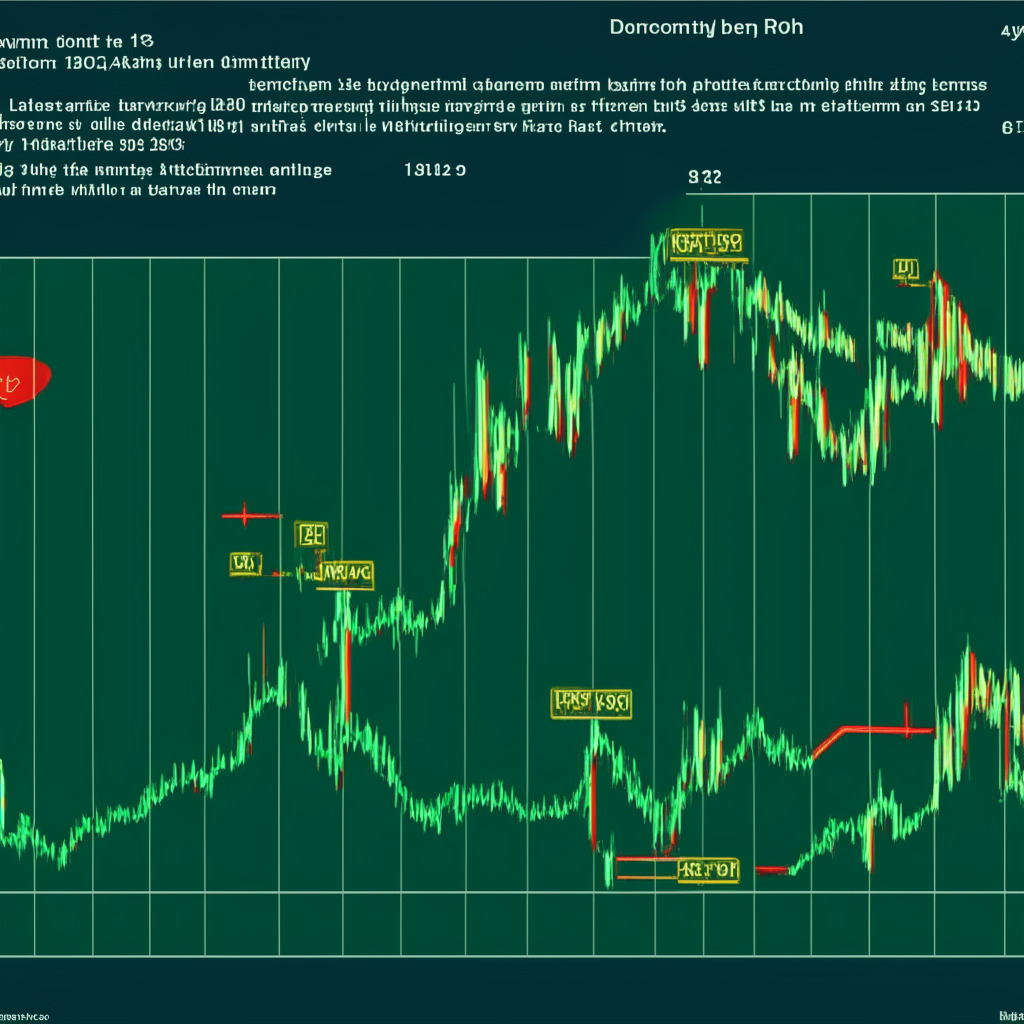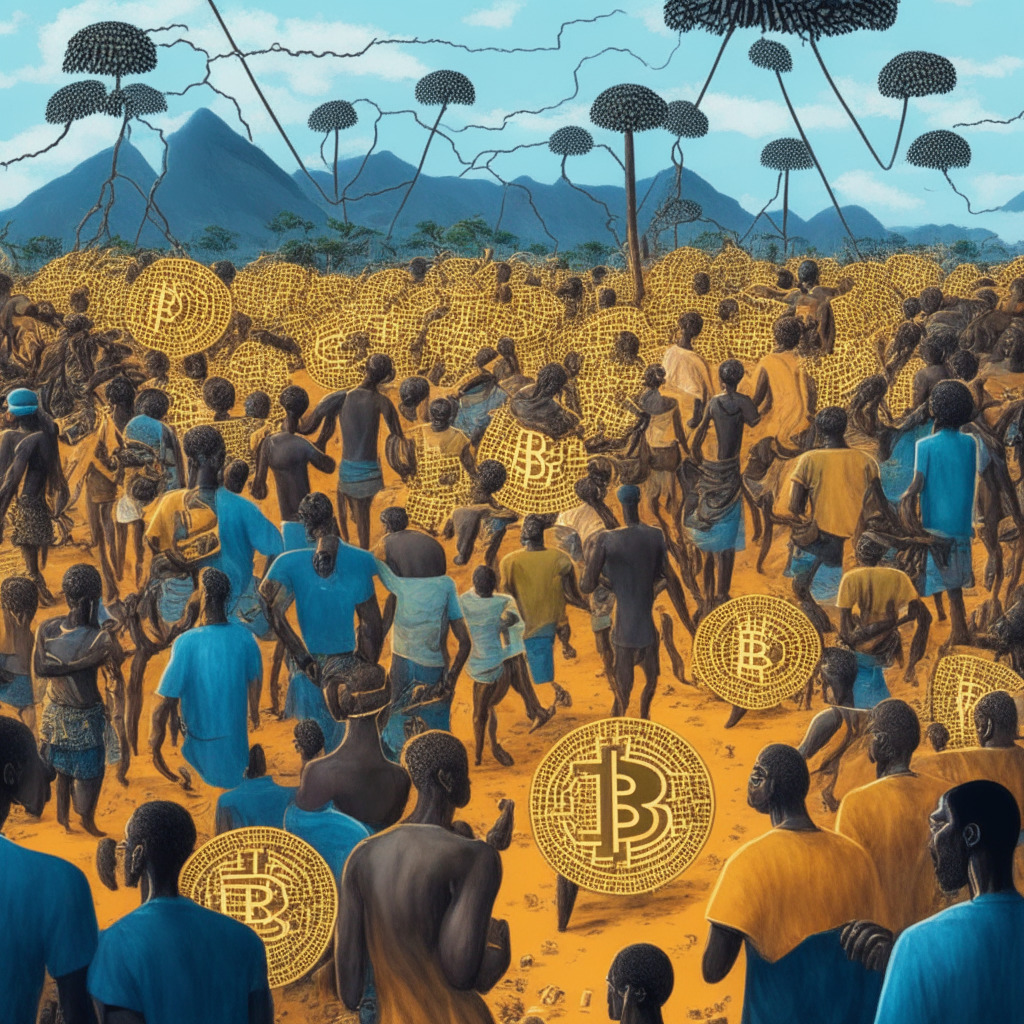Elon Musk’s appointment of Linda Yaccarino as Twitter’s CEO raises questions about potential integration of crypto payments on the platform. This could impact the crypto market, promoting adoption and decentralization, but it also carries risks like hacking and regulatory scrutiny.
Month: May 2023
Florida Bans CBDCs: Protecting Privacy or Hindering Technological Progress?
Florida Governor Ron DeSantis has officially banned Central Bank Digital Currencies (CBDCs) within the state, protecting residents from a potential Federal Reserve-issued digital currency. Critics argue CBDCs offer transparency and reduced costs but DeSantis claims they’re about “surveillance and control.” The decision’s broader implications on the crypto landscape remain uncertain.
Linda Yaccarino as Twitter CEO: Impact on Crypto and Blockchain Industries Explained
Recent reports suggest that Linda Yaccarino, NBCUniversal’s Chair of Global Advertising and Partnerships, could become Twitter’s CEO, affecting the platform’s approach to international discourse and digital assets. A leadership change at Twitter may contribute to the overall growth of crypto and blockchain industries. As we await official confirmation, the crypto community remains cautiously optimistic about the new CEO’s potential impact.
Dogecoin’s Falling Wedge Pattern: Potential for a 47.8% Rally Amid Market Downturn
Dogecoin (DOGE) price experienced a sharp 31.6% correction, from $0.105 to $0.07, following a falling wedge pattern. A bullish breakout could potentially trigger a 47.8% rally, but the ongoing correction is expected to persist. Strong bearish momentum is evident in technical indicators.
Exploring
The advent of Web3 gaming, the intersection of blockchain and the gaming industry, offers opportunities for innovators, game developers, and players. Hedera’s Web3 gaming ecosystem encourages creativity and collaboration, while addressing concerns about sustainability, scalability, and energy consumption. Despite potential drawbacks, Web3 gaming holds immense potential for interactive and rewarding experiences.
Celsius Collapse & The Failed $1 Billion Rebrand: Analyzing Missteps and Lessons Learned
Former Celsius CEO Alex Mashinsky aimed to raise $1 billion for a rebranding project, Celsius Web Service (CWS), focusing on yield and custody. However, the plan came amidst the company’s collapse, with over $4.7 billion owed to users and depleted funds.
Crypto Market Turmoil: Coinbase Execs Reap Rewards Amid $1.6 Trillion Loss & Future Prospects
In 2022, the cryptocurrency market witnessed a $1.6 trillion drop in market cap, affecting companies like Coinbase but benefiting its executives. Coinbase faced a $2.6 billion loss, yet 20% of examined crypto assets saw growth, hinting at potential recovery.
Bitcoin Price Drop: Regulatory Uncertainty and Resilient Traders Battle for $28,000
The Bitcoin price dropped 7% on May 12, breaking below the 55-day support and liquidating $100 million worth of long BTC futures contracts. Possible causes for the decline include increased regulatory uncertainty in the U.S., concerns over Grayscale GBTC Trust Fund holdings, and the Dollar Strength Index. Despite this drop, derivative market metrics and trader stances indicate hope for a recovery towards $28,000.
Web3
Web3 and NFTs are revolutionizing the music industry, with the inaugural Wavelengths Summit discussing blockchain-based communities, AI, and future artist revenue streams. The event emphasized community building through blockchain and decentralization while exploring the potential of decentralized autonomous organizations (DAOs) in the industry.
Bitcoin Network Clogged by BRC-20 Tokens: Debating Solutions and Market Impact
The Ordinals protocol has caused an explosion of BRC-20 tokens, clogging the Bitcoin network and leading to high transaction fees. Developers are debating whether to take drastic steps to address the issue or maintain the status quo. Meanwhile, some Bitcoin users in Africa are seeking alternative payment options, and Binance plans to integrate the Lightning Network to scale.
Animoca Brands’ Financial Success: Can They Sustain Growth in Uncertain NFT Market?
Hong Kong-based Animoca Brands boasts a strong financial position, holding $194 million in stablecoin reserve and $566 million in liquid digital assets as of April 30, 2023. The company experienced significant growth in 2021 and continues to actively seek opportunities in gaming and the metaverse.
Animoca Brands’ Financial Growth: A Rising Force in NFTs, Gaming, and Metaverse
Hong Kong-based Animoca Brands is in a financially strong position with $194 million in stablecoin reserves and $566 million in liquid digital assets. The company’s incomes surged from $148 million in Q4 2021 to $573 million in Q1 2022, driven by NFT and token sales. Despite challenges, Animoca Brands’ resilience and growing acceptance of blockchain technology reflect its commitment to advancing digital property rights and entertainment.
Safeguarding Your Online Identity: Strong Passwords, 2FA, and Beyond
Protecting online identity is crucial in the digital age; adopt practical security strategies such as using strong, unique passwords, enabling two-factor authentication, avoiding phishing attacks, utilizing VPNs, keeping software updated, and employing reputable antivirus programs to safeguard personal data against cybercriminals.
Cryptocurrencies and Blockchain: Revolution or Risk? Debating Pros and Cons
Cryptocurrencies and blockchain technology promise decentralization, financial inclusivity, efficiency, and security, yet face challenges like market volatility, energy consumption, regulatory uncertainty, and associations with illicit activities. The future depends on balancing potential benefits with mitigating risks to harness this technological revolution.
Binance Liquidity Decline Triggers Bitcoin Volatility: Impact of US Banking Failures and Promotions
Binance experienced a decline in trading volumes and liquidity in Q1 2023 due to U.S. banking failures and termination of its zero-fee promotion. This resulted in increased Bitcoin price volatility and a sharp drop in monthly trading volumes for the BTC-USDT pair.
Twitter CEO Hunt: Will Crypto Dominate Platform’s Future with Musk’s Influence?
The crypto community eagerly awaits Twitter’s new CEO appointment, as it may affect the platform’s stance on cryptocurrency adoption. With Elon Musk’s involvement and recent addition of meme tokens on Binance US, speculations arise whether Twitter would introduce crypto-based payments and gifting options, attracting a broader user base or alienating skeptics.
Exploring Web3 Wallets: Bridging the Gap Between Security and Convenience
The Web3 ecosystem relies on wallets for user identity verification and transaction authorization. Wallet infrastructures like Magic, Dfns, and Web3Auth aim to provide both security and convenience by exploring seedless wallets, multiparty computation (MPC), and Hardware Security Modules (HSM).
Falling Wedge Pattern in Solana Price: Breakout or Prolonged Correction Phase?
Solana price has been in a correction phase, forming a falling wedge pattern. Despite market sell-off, the pattern provides an understanding of possible price movements. A breakout from the wedge pattern could end the correction phase, potentially signaling a 5% price increase in the near term.
Coinbase Co-founder’s $50M Stock Investment: Bold Confidence or Risky Gamble?
Coinbase co-founder Fred Ehrsam has invested $50 million in the company’s stock despite an 85% decrease since its listing two years ago. Ehrsam’s bullish move follows similar purchases by other insiders, showcasing unwavering conviction in Coinbase’s future potential and the wider cryptocurrency market.
Exploring Moon-Shot Crypto Projects of 2023: AI Predictions & Market Impact
Explore price predictions for five of the fastest-growing moon-shot crypto projects of 2023, guided by insights from AI co-pilot, ChatGPT. Including AiDoge, SpongeBob, No Meme Token, Ecoterra, and Launchpad XYZ, these projects redefine norms and offer exciting opportunities for investors.
Eco-friendly Algorand vs Security Concerns: Balancing the Blockchain Future
The future of cryptocurrencies is leaning towards sustainable blockchains like Algorand, which utilizes an eco-friendly pure proof of stake protocol. While this method lowers energy consumption, critics argue it might compromise security and decentralization—highlighting the challenge of finding a balance between sustainability and other crucial aspects of blockchain technology.
Terraform Labs Co-Founder’s Arrest & Impact on Crypto Industry: Analyzing the Case
Terraform Labs co-founder, Do Kwon, has been released on bail amidst ongoing legal proceedings involving allegations of forging travel documents. Kwon’s case highlights the importance of transparency and regulatory compliance in the crypto space as the industry faces increased scrutiny.
Unmasking Blockchain Immutability: A Dive into Accountability and Trust
Blockchains are not inherently immutable; rather, they offer accountability and trust. While past transactions remain unchangeable, balances and smart contract codes can be updated. The real value lies in ensuring any executed or altered element is specified, fostering transparency and security in applications requiring human collaboration and money management systems.
AI’s Double-Edged Sword: Influencing Elections and Safeguarding Democracy
In this article, the potential threat of AI-generated text, deep fakes, and biased AI algorithms on democracy is discussed, as well as AI’s possible benefits in combating disinformation. With a multifaceted approach, involving government regulation, international cooperation, and public education, it’s possible to mitigate these risks.
Estonia’s 80% Crypto Firm Drop: Balancing Regulation and Business Viability in the Crypto Space
Estonia has experienced an 80% decrease in registered crypto firms due to tightened regulatory standards on the cryptocurrency sector, from 650 companies to just 100. This follows amendments to the Prevention of Money Laundering and Terrorist Financing Act and increased scrutiny of crypto’s “high risk” associations. While stricter regulations protect against illegal activities, balancing requirements with businesses’ capacity is crucial for a healthy crypto ecosystem.
NFT-Enabled TVs: The Future of Digital Art Trading or a Passing Trend? Pros and Cons Explored
LG aims to revolutionize digital art collecting by patenting TV technology that enables users to trade non-fungible tokens (NFTs) directly from their screens, connecting to an NFT market server and utilizing a cryptocurrency wallet. This innovative step towards mainstream adoption of digital assets shows remarkable progression in integrating technology and cryptocurrency markets.
Blockchain Future: Captivating Potential vs. Real-World Limitations
Blockchain technology holds potential to revolutionize industries like finance, healthcare, and supply chain management by enhancing security, transparency, and efficiency. However, challenges like scalability, regulatory hurdles, and environmental impact must be addressed to fulfill its promise.
Do Kwon’s Bail Approval: Impact on Crypto Sphere and Regulatory Loopholes Debated
The approval of Terraform Labs co-founder Do Kwon’s bail amidst allegations of possessing forged travel documents raises concerns in the crypto industry. The outcome of this case may impact the broader crypto community regarding regulatory measures and legal ramifications surrounding the use of false documents.
Ethereum Price Breakdown: Temporary Pullback or Start of a Major Downtrend?
Ethereum experienced a breakdown from support levels of $1,827, leading to increased selling momentum. Despite falling for seven consecutive days, the overall trend remains bullish. Ethereum trades at $1,766 with potential to hit $1,500 or rebound from the long-support trendline, offering pullback trade opportunities.
Do Kwon’s Release on Bail: Implications for Crypto Industry & Legal Challenges Ahead
Terraform Labs founder Do Kwon’s release from Montenegro jail on supervised bail raises questions on the trial’s outcome and international opinions on Kwon’s actions. This situation exemplifies ongoing legal complications for those involved in the evolving cryptocurrency industry and serves as a reminder of its impact on overall perception of the field.
Navigating Crypto Regulations: Montenegro’s Bail Decision Exposes Challenges and Progress
Montenegro’s recent approval of bail terms for Do Kwon, charged with document forgery, highlights progress in crypto regulation and ongoing challenges. This high-profile case emphasizes the need for flexible, effective approaches to tackle legal issues and criminal activities in emerging crypto markets.
2024 Bitcoin Halving Debate: Buy the Dip Now or Wait for a Better Entry Point?
As Bitcoin nears the 2024 block subsidy halving, some experts deem it “buy the dip” territory, expecting price patterns to resemble previous halving cycles. However, the relationship between halvings and price remains debated, highlighting the uncertainties in predicting Bitcoin’s future.































